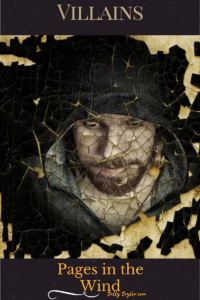
The last draft is done. Done? Well, that’s relative for sure. It’s not easy to set the pen down and say the story is over. The characters have become friends and I hope I did them justice. Writing is gut wrenching and I’m great at second guessing. Some days I read the chapter and was happy and the next day I wanted to keep editing. Letting go is hard.
Brooklyn Bitters is different from my former novel, Pages in the Wind. Pages in the Wind was well received by the critics and I worry about comparisons. I can’t help wonder if sequels are easier, at least you already know the characters.
I love the characters in Brooklyn too, they are just different. They’re not as messed up as Pages so the message is more muted. But Kate, of Brooklyn Bitters, is close to my heart and I love her character. She grows and learns a lot during her journey and I especially appreciate the relationship she has with her mother and friend, Winona. Her sister, Stacey, was fun to write and tried to hyjack the story!
Here are a few lessons I’ve learned during this writing process:
* I need more privacy. When I wrote Pages, I had few interruptions. Now, I have fairly constant interruptions and that makes the writing process harder. I’ve had to go to a hotel a time or two. So, I need to improve my space.
*Beta readers are better during the second draft. For me, the first draft is bare bones and doesn’t reflect well. I prefer to keep the first draft to myself and get beta readers for the second.
*Editors should be reserved for the final. I made that mistake and it turned out to be a stupid thing to do and a waste of time and money.
*Having help for the research was so helpful. I had an amazing all-around brilliant PR expert that listened to my upcoming audio book, did research, and was a reader. She is golden. Thank you, Regina!
*Writing software is so-so. I like grammerly and autocrit but the latter is only effective to a point. It tags a lot of issues that aren’t really issues like passive words in dialogue etc… it’s great for checking repetition though. Pacing? Not so much, for me anyway.
*Reading apps that read the work back are great. Amazing what you can catch with the ear that you can’t catch with the eyes! Some are better than others and some won’t work with your computer. I have “Speak to me” and “Read to me.” The voices are somewhat flat but you have voice choices which helps. I dug the guy with the British accent.
Writer’s block is real. I think the lack of privacy contributed but definitely it’s a fact of life at times. And no fun! For me, I just kept writing. I got stuck on a few chapters and threw a lot away but kept writing until I broke through. I know some writers leave it and go back later, but that didn’t work for me. I prefer to keep writing and live with the frustration. In the long run, it worked out.
Every writer is different, I’m sure, but those are the lessons I’ve learned from this book. Now, on to the next!



 Brooklyn Bitters, a mystery due to be released soon, has interesting characters including a prominent character who died ten years ago. His death is the source of sorrow and guilt…and a mystery to the heroine, Kate. In this scene, she wonders why visiting the cemetery stirs up so many questions.
Brooklyn Bitters, a mystery due to be released soon, has interesting characters including a prominent character who died ten years ago. His death is the source of sorrow and guilt…and a mystery to the heroine, Kate. In this scene, she wonders why visiting the cemetery stirs up so many questions. There’s always one character that’s easier and fun to write. In Pages in the Wind it was Doctor Lieberman, a lonely, celebrated psychiatrist with a sharp mind and tragic past. In Brooklyn Bitters, it’s Stacey, a self-indulgent narcissistic and sexy homemaker. Two entirely different characters. Why they were my personal favorites, I don’t know. They have nothing in common but just seemed to jump onto the page with ease. Here’s an excerpt of Stacey. Maybe you’ll sense why she was fun to write:
There’s always one character that’s easier and fun to write. In Pages in the Wind it was Doctor Lieberman, a lonely, celebrated psychiatrist with a sharp mind and tragic past. In Brooklyn Bitters, it’s Stacey, a self-indulgent narcissistic and sexy homemaker. Two entirely different characters. Why they were my personal favorites, I don’t know. They have nothing in common but just seemed to jump onto the page with ease. Here’s an excerpt of Stacey. Maybe you’ll sense why she was fun to write:
 Brooklyn Bitters, my upcoming book due out this summer, deals with lies, alliances, love, and family loyalty. It’s a character-driven read. In this scene, the main character deals with a range of emotions as she comes face-to-face with her mother’s awakening from a long term coma.
Brooklyn Bitters, my upcoming book due out this summer, deals with lies, alliances, love, and family loyalty. It’s a character-driven read. In this scene, the main character deals with a range of emotions as she comes face-to-face with her mother’s awakening from a long term coma.



 Writing about desire taps into vulnerability. When I penned Pages in the Wind the plot had significant grit and violence; it was essential to the story. I chose not to weigh it down with explanation or wordy passages. My upcoming book, Brooklyn Bitters, deals with love, betrayal, and loyalty. My character, Kate, is a career woman whose life has gotten away from her. She missed out on romantic love. In this scene, she lets go of her walls and we feel her inner dialogue. It wasn’t hard to write, but it felt, at times, familiar.
Writing about desire taps into vulnerability. When I penned Pages in the Wind the plot had significant grit and violence; it was essential to the story. I chose not to weigh it down with explanation or wordy passages. My upcoming book, Brooklyn Bitters, deals with love, betrayal, and loyalty. My character, Kate, is a career woman whose life has gotten away from her. She missed out on romantic love. In this scene, she lets go of her walls and we feel her inner dialogue. It wasn’t hard to write, but it felt, at times, familiar.
 Have you gone somewhere and knew you’d been there before? Met someone and felt an instant connection? What about a snapshot in your mind that disappeared?
Have you gone somewhere and knew you’d been there before? Met someone and felt an instant connection? What about a snapshot in your mind that disappeared?